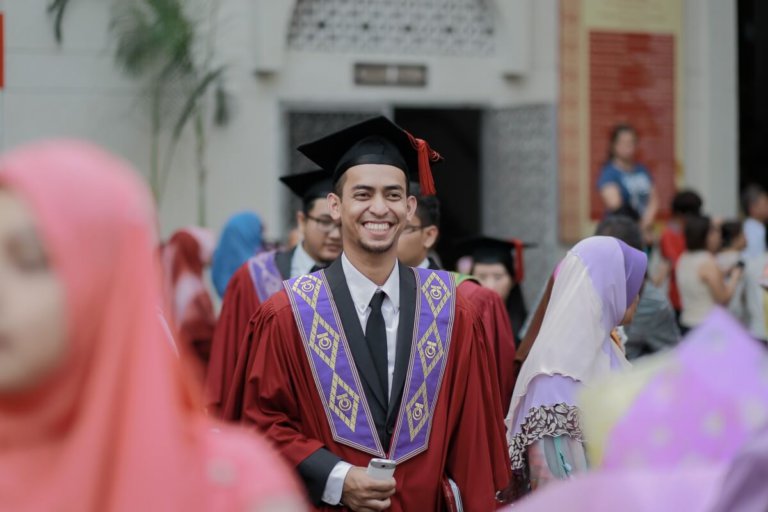
In conjunction with the British Council Study UK Fair, the British Council recently organised a panel discussion to facilitate conversation between stakeholders on Malaysia’s future workforce and graduate employability.
The discussion panel comprised International Student Recruitment Manager of University Academy 92 (UA92), Rachel Tod; Manager of Industry Partnerships of Talent Corporation Malaysia Berhad (TalentCorp), Noor Asmaliza Romlee; and Country Human Resources Officer of Citibank Malaysia, Nisha Padbidri. The session was moderated by Clare Walker, Chief Executive Officer (CEO) of Financial Industry Collective Outreach (FINCO) – the largest collective impact initiative in Malaysia with 107 Malaysian financial institutions as its members.
The recent Budget 2020 announced a Graduates@Work programme in which graduates who have been unemployed for a year will receive a monthly wage incentive of RM500 for two years should they secure a job. Meanwhile, employers will receive a monthly incentive of RM300 for each new hire for two years. This two-pronged approach by the government highlighted a pressing issue in Malaysia, backed by the Higher Education Statistics 2018 released by The Ministry of Education. Findings showed that while more than 290,000 students graduate annually, one in five fresh graduates remain unemployed for six months post-graduation.
This is unsurprising given that with the evolution of technology, the current job landscape has changed drastically. In many industries and countries, the current in-demand occupations or specialties did not exist 10 or even five years ago. This poses major challenges requiring adaptation by corporations, governments, and individuals – which explains the makeup of the panel this round. The panelists discussed in-depth the landscapes of current and future labour markets; roles education institutions play in preparing graduates for the workforce; and how all stakeholders can work together to avoid a mismatch of skills among graduates and industries.
Speaking at the panel discussion, Country Human Resources Officer of Citibank Malaysia, Nisha Padbidri said: “The world is changing so fast that skills one acquires today can become irrelevant over a short span of even a few months. Foresight into what is going to be relevant is the joint onus of policy makers, educational institutions, industry players and the millennials themselves. University curriculums need to be synced with industry requirements and such programmes will need funding or incentives to enhance youth employability and get our young graduates ready to launch into their careers confidently and to contribute to nation building.”

“The world is changing so fast that skills one acquires today can become irrelevant over a short span of even a few months.” Source: Shutterstock
Deputy Chief Executive Officer of TalentCorp, Puan Mahuran Saro Sariki added: “Local graduates are the immediate source of entry-level talent for many industries in Malaysia. Hence, it is crucial to ensure employers benefit from the availability of graduates who are industry-ready and are able to support the country’s knowledge economy aspirations. As the government agency driving Malaysia’s talent strategy, TalentCorp partners with key stakeholders in the public and private sectors on initiatives that attract, nurture and retain the right human capital for our nation’s continued growth.”
Of the key takeaways of the session, International Student Recruitment Manager of University Academy 92 (UA92), Rachel Tod noted that the monetary incentives from Budget 2020 will certainly be encouraging. She wants employers to feel empowered to take on more employees where possible. On the other hand, students need to be more discerning when it comes to the university of their choice, she stresses. While the university may claim to value employability, students will need to ask if this translates into opportunities to do placements or shadowing in local companies.
Other important points of the session also drew attention to the fact that employers are no longer focused solely on academic achievements – though it does get them through the proverbial door. However, in order to thrive, graduates must also possess soft skills; emotional intelligence; and digital literacy.
Nisha Padbidri added on this front: “Universities should act as incubators for innovation, moving away from purely passive learning to a greater focus on industrial attachments which would provide students with opportunities to experience real-life work settings and a realistic window into the actual demands of the working world. It would be beneficial for education institutions to introduce workshops and resources that equip students with the critical soft skills needed for the future such as creativity; agility resilience; empathy, and decision making.”
As FINCO CEO Clare Walker explained, “I want students to reflect on the fact that their degree no longer dictates the type of career they go into. This means they need to be more agile and understand the skills and attitudes they need to develop before starting their career so that they not only get a foot in the door, but thrive in the long run.”
Liked this? Then you’ll love…
These are the best Australian universities for graduate employability
Mixing employability skills with degree framework is essential for universities to thrive







